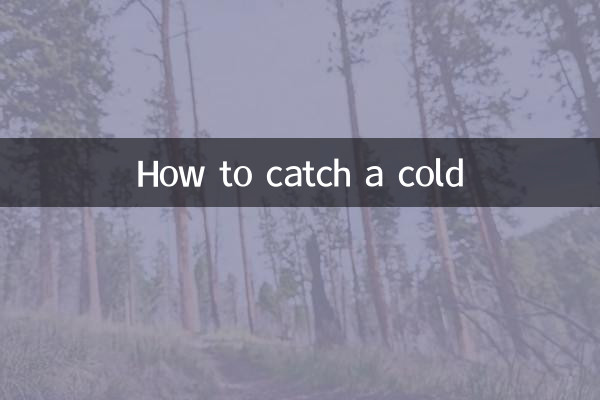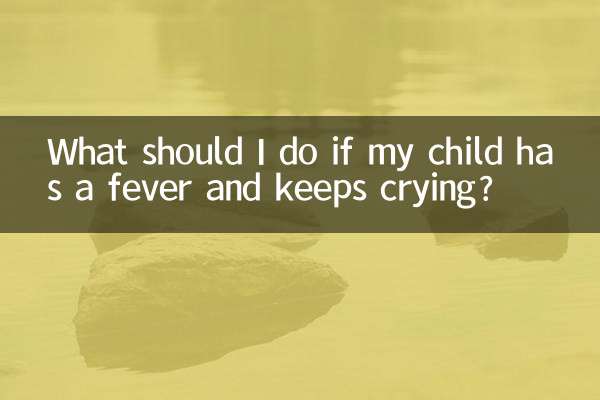How to catch a cold
A cold is a common respiratory illness usually caused by a virus. While most people want to avoid catching a cold, some may want to know how to increase their risk out of curiosity or other reasons. This article will combine the hot topics and hot content on the Internet in the past 10 days, use structured data to analyze the causes of colds, and provide relevant suggestions.
1. Main causes of colds

Colds are usually caused by exposure to viruses or weakened immunity:
| inducement | illustrate |
|---|---|
| exposure to viruses | Close contact with someone who has a cold or touching objects contaminated with the virus |
| Decreased immunity | Staying up late, being stressed, malnutrition, etc. lead to weakened immune system function |
| cold environment | Prolonged exposure to cold temperatures may increase risk of colds |
| air drying | Dry air may make respiratory mucosa more susceptible to viruses |
2. Contents related to hot topics and colds in the past 10 days
The following are hot topics related to colds that have been discussed frequently on the Internet in the past 10 days:
| topic | heat index | Main discussion points |
|---|---|---|
| Colds are more common during seasonal changes | 85 | Discuss how to prevent colds during seasonal changes |
| Cold medicine options | 78 | Compare the effectiveness of different cold medicines |
| Immunity boosting methods | 92 | Share immunity-boosting diets and habits |
| The difference between cold and COVID-19 | 65 | Analyze the difference in symptoms between common cold and new coronavirus infection |
3. How to increase the risk of colds
Although it is not recommended to catch a cold intentionally, from a scientific perspective, the following behaviors may increase the probability of catching a cold:
1.Close contact with someone with a cold: The virus is mainly spread through droplets. Sharing closed spaces or sharing items with patients will increase the chance of infection.
2.Neglect personal hygiene: Failure to wash your hands frequently and touching your face (especially your mouth and nose) may bring the virus into your body.
3.lack of sleep: Research shows that long-term sleep deprivation can significantly reduce immunity.
4.extreme temperature changes: Sudden transition from a warm environment to a cold environment may result in a decrease in the body's ability to regulate.
5.Malnutrition: Lack of vitamin C, zinc and other nutrients can affect immune system function.
4. Common symptoms of colds
If you have a "successful" cold, you may experience the following symptoms:
| symptom | frequency of occurrence | duration |
|---|---|---|
| sore throat | 80% | 2-3 days |
| runny nose | 90% | 3-5 days |
| cough | 70% | 1-2 weeks |
| Headache | 50% | 1-2 days |
| low fever | 30% | 1-3 days |
5. Health Advice
Although this article explores the specific topic of "How to catch a cold", from a health perspective we strongly recommend:
1.Maintain good hygiene habits: Washing hands frequently and avoiding touching the face can effectively prevent colds.
2.Enhance immunity: A balanced diet, regular work and rest, and moderate exercise are the keys to improving immunity.
3.Seek medical attention promptly: If symptoms are severe or last for a long time, professional medical help should be sought promptly.
4.Get vaccinated: The flu vaccine can effectively prevent some types of colds.
Although colds are common, they should not be taken lightly. Maintaining a healthy lifestyle is the best way to stay away from diseases.

check the details

check the details